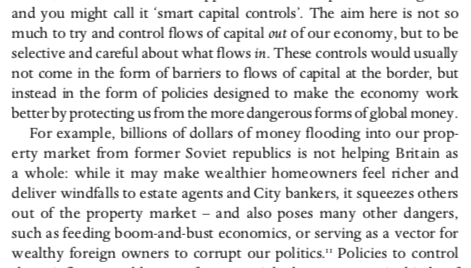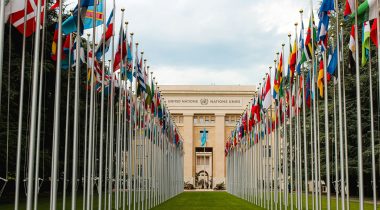
Nick Shaxson ■ Taxing foreign capital as an alternative to tariffs

Michael Pettis, a well known China-watcher and expert on global finance and macroeconomics (who has also apparently been a leading light in Beijing’s punk rock scene), has published a new article on Bloomberg entitled 5 Smart Reasons to Tax Foreign Capital.
It’s a welcome antidote to all those who feel that the route to national prosperity is through desperately throwing subsidies and tax reliefs at the world’s flighty capital. As Pettis shows, once again, this ‘competitive’ approach to global capital is a fools’ errand. Much better, he says, to tax the foreign inflows.
The article is US-focused, at a time when there’s a lot of attention on trade tariffs, but it has wider general ramifications. He notes a newly introduced US bill to “apply a variable tax on foreign purchases of U.S. dollar assets whenever foreigners direct substantially more capital into the U.S. than Americans direct abroad.”
The idea is to reduce capital inflows into the United States – which is the macroeconomic equivalent of taking loans from foreigners. As he explains:
“a country’s capital account must always and exactly match its current account, if the American capital account is balanced, then its current account must also balance, and the U.S. trade deficit would effectively disappear.”
There’s nothing wrong with trade deficits per se, but US trade deficits have been rather persistent, and potentially troublesome. The benefits of using this tool, rather than trade tariffs, are many-fold:
- The United States, like many countries, is awash in destabilising capital. Curbing this would be a benefit.
- If such a plan were flexibly designed, it could balance the current and capital accounts over the medium to long term.
- It would also contribute to financial stability, by “penali(sing) short-term and speculative inflows more than longer-term inflows into productive investment.”
- While tariffs benefit some producers at the expense of others, a tax on capital inflows benefits nearly all domestic producers, mainly at the expense of the banks. (What’s not to like?)
- Reduces distortions. “taxing capital inflows doesn’t distort the relative prices of goods and services and disrupt value chains, as tariffs do.”
- It would promote efficient capital allocation since most capital inflows are driven by fads, craziness and froth.
We could add a couple of other benefits.
7. Raising revenue. This could be transformed into productive public investment, debt reduction, or tax cuts on poorer people.
8. And finally, by reducing the relative weight in the economy, it would rein in the Finance Curse. As the Finance Curse book notes:

Related articles
UN submission: Tax justice and the financing of children’s right to education
14 July 2025

How the UN Model Tax Treaty shapes the UN Tax Convention behind the scenes
The 2025 update of the UN Model Tax Convention
9 July 2025
One-page policy briefs: ABC policy reforms and human rights in the UN tax convention

Bad Medicine: A Clear Prescription = tax transparency
Tax justice pays dividends – fair corporate taxation grows jobs, shrinks inequality

Reclaiming tax sovereignty to transform global climate finance
Reclaiming tax sovereignty to transform global climate finance
16 June 2025

The “millionaire exodus” visualised
The millionaire exodus myth
10 June 2025

